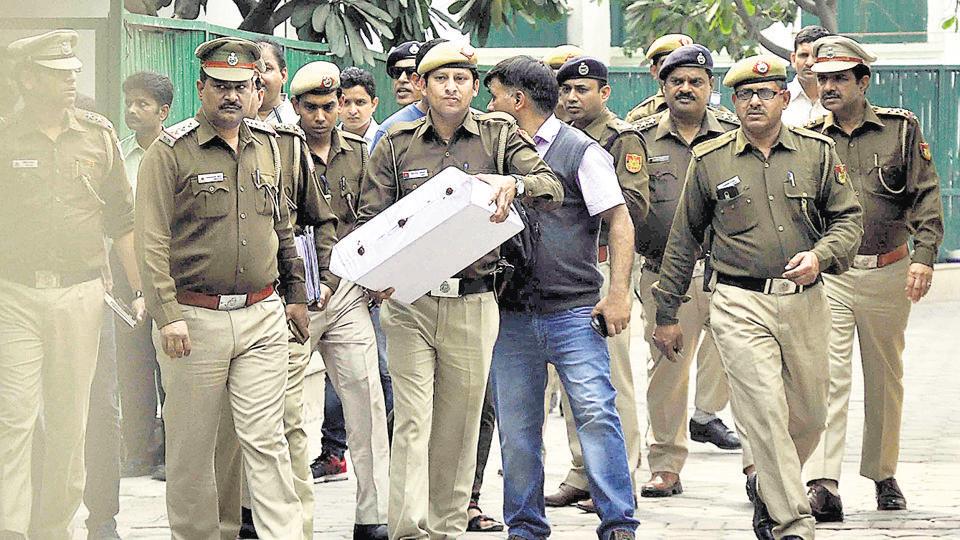By: Pavani Nagaraja
An independent Police Complaints Authority (PCA) is being constituted for Delhi to inquire into complaints by the public against the police. This comes 11 years after the Supreme Court issued a directive to all states and union territories to set up complaints authorities as one of the seven directives in what is popularly known as the Prakash Singh Case.
In 2015, the Commonwealth Human Rights Initiative (CHRI) filed a petition in the Delhi High Court seeking the quashing of an existing order mandating Delhi’s Public Grievances Commission to function as a PCA. Being contrary to the court’s directive, CHRI wanted a fresh notification creating a free-standing, independent PCA. After two years in court, the lieutenant governor issued a draft notification on January 31, setting out an independent PCA. The high court’s approval is a positive step in creating a mechanism to address police misconduct.
PCA is mandated to look into allegations of police misconduct such as custodial torture, rape, death, extortion and any other serious abuse of authority. While the proposal submitted to the court is broadly compliant with the Prakash Singh directive, it has substantial gaps.
The Supreme Court has directed the setting up of PCAs at state and district levels for states. However, a single-tier PCA for Delhi is being set up with a chairperson and three members, presumably with jurisdiction over all ranks of personnel in the Delhi Police. The national capital is a sprawling area with a population of over 25 million. It has one of the biggest police departments in India with over 82,000 personnel and 13 police districts.
It also has the dubious distinction of receiving the highest number of complaints against police personnel compared to other megacities. In 2014, data revealed that the Delhi Police received 12,872 complaints against its personnel, with a majority of districts receiving well over 500 complaints each. Looking at the volume of complaints, a single PCA with four members will be insufficient.
In the present structure, undue restrictions are placed on complainants in two ways. First, complaints can only be received from the victim, someone on the victim’s behalf, the National Human Rights Commission (NHRC), the lieutenant governor or the chief secretary (home) of Delhi. There is no justification for restrictions on who can submit a complaint. This should be amended in the notification. Second, it unnecessarily mandates the submission of a complaint through a sworn affidavit. This creates a burden, particularly on the poor and vulnerable. Most important, it suggests a distrust of potential complainants. In fact, everything is stacked against the complainant who faces as daunting a task as filing a complaint against a police officer.
In states with functional complaints authorities, complaints are generally submitted in the form of letters which describe the nature of allegations. Independent bodies, such as the NHRC, do not prescribe the submission of complaints with sworn affidavits and allow any person to submit complaints through letters. It is important to retain this process to keep a complaints body as accessible as possible.
The proposal is also silent on the power to appoint and utilise the services of independent investigators. The Supreme Court stated that the authorities have the power to utilise the services of retired investigators from the CID, intelligence, vigilance or any other organisation for field inquiries. This is essential to keep PCA’s inquiry role at arm’s length from the police department.
Without its own investigators, PCA will inevitably have to depend on the Delhi Police to gather and corroborate facts and information which can lead to both delays and compromised inquiries. Other states have good practices to emulate —Tripura and Assam PCAs have appointed independent investigators, and the latest annual report of Uttarakhand PCA stresses their necessity.
Further, in complete violation of the Supreme Court directive, the present draft says that the PCA’s decision is binding unless the government reverses or alters the decision. The apex court directive is unequivocal that the PCA’s recommendations ordering departmental inquiry or registration of FIR against police personnel should be binding. By giving the government complete discretion to alter the authority’s decisions, the draft goes against the spirit and letter of an effective PCA for Delhi.
- Pavani Nagaraja is project officer, Police Reforms Programme, Commonwealth Human Rights initiative, Delhi. Source: www.hindustantimes.com





